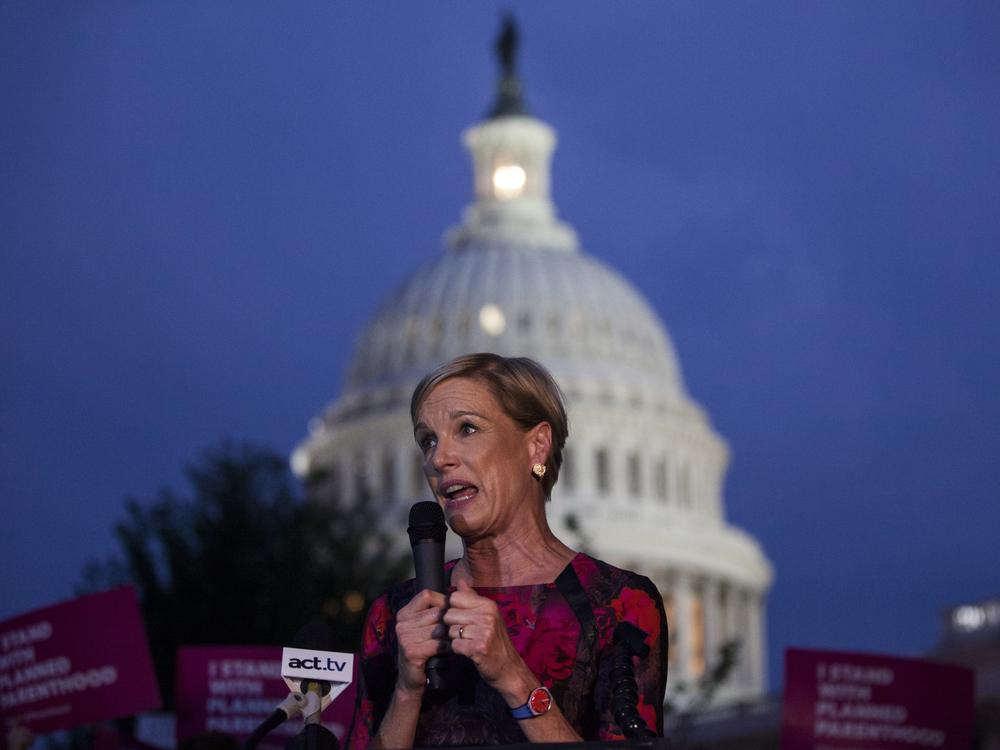Section Branding
Header Content
Former head of Planned Parenthood Cecile Richards has died
Primary Content
Cecile Richards, a prominent advocate for women's rights and other progressive causes, died Monday. In a statement, her family confirmed her death, saying she passed away at home, "surrounded by family and her ever-loyal dog, Ollie."
"Our hearts are broken today but no words can do justice to the joy she brought to our lives," the statement said.
Richards was best known for her work leading Planned Parenthood through a particularly challenging time which included threats to its funding and the first election of Donald Trump to the presidency.
During more than a decade at the helm of Planned Parenthood, Richards was often called upon to defend the reproductive health organization against attacks from political opponents. She and her movement faced mounting challenges after Trump, who ran for President in 2016 on a promise to overturn the landmark abortion rights decision Roe v. Wade, was first elected.
At the Women's March in Washington the day after Trump's inauguration in 2017, Richards addressed thousands of marchers and promised to fight his policies.
"Today we're here to deliver a message: we're not gonna take this lying down, and we will not go back," Richards told the crowd.
The next year, Richards announced she was leaving Planned Parenthood. After leaving the organization, Richards focused her efforts on leading Supermajority, a group she'd co-founded to mobilize female voters.
In the years to come, the Trump administration would take steps designed to reduce access to abortion, including cutting off funds for groups that make abortion referrals, like Planned Parenthood, through an overhaul of the Title X family planning program.
Over the course of his first term, Trump named three conservative justices to the Supreme Court, who, in June of 2022, would ultimately vote to overturn decades of abortion-rights precedent.
Despite setbacks for the abortion rights movement and a diagnosis of brain cancer, Richards embodied an "indefatigable" determination, says former Texas State Sen. Wendy Davis.
"Her belief [was] you can't give up before you even start, and that it's always worth a fight," Davis said.
Davis worked closely with Richards during a high-profile battle to defeat an anti-abortion bill in Texas in 2013. Now a senior advisor to Planned Parenthood Texas Votes, the group's political arm in Texas, Davis says Richards still inspires her to keep fighting.
"You want to give in to the weariness and give in to just giving up," Davis said. "When I'm tempted to feel that way, I think about Cecile, and I know a lot of people do."
Richards herself drew inspiration from the legacy of her mother, the late Texas Gov. Ann Richards, who was known for her sharp wit and down-to-earth demeanor.
During a hearing before the House Committee on Oversight and Government Reform in 2015, a male lawmaker asked her if she expected the committee "to be easier on you because you're a woman?"
"Absolutely not," Richards responded. "That's not how my mama raised me."
The hearing stemmed from the release of secretly-recorded videos by the Center for Medical Progress, an anti-abortion group that accused Planned Parenthood of selling fetal body parts. Planned Parenthood said the sting videos were edited to be deliberately misleading.
Dr. Colleen McNicholas, Chief Medical Officer at Planned Parenthood Great Rivers in the St. Louis area, knew Richards for more than a decade through their advocacy for abortion rights.
"I think she really changed the way that the movement engaged publicly; she was a very visible and bold presence," McNicholas says. "She wasn't afraid to take questions, to say the word 'abortion.'"
Washington Sen. Patty Murray, a Democrat with a long history of advocacy for reproductive rights, credits Richards with an instrumental role in making sure the Affordable Care Act, which passed under President Barack Obama, included contraceptive coverage.
Murray says despite the setbacks the movement has faced in recent years, she sees Richards as an example of continuing to fight.
"I would take what Cecile has done in her lifetime and use it as a charge to all of us now: you move forward, you fight for what you believe in, you have the courage to stand up and say what is right," Murray says. "You take those setbacks, learn from them, and move forward, and she's always done that."
In an Instagram post in January 2024, months after her cancer diagnosis, Richards described going through a whirlwind of treatments, time with family, and focusing on what was most important — including her continued activism.
"After all," Richards wrote, "as my mother used to say: 'Why should your life be just about you?'"
As her health continued to decline, Richards addressed the 2024 Democratic National Convention.
She spoke of the joy of recently becoming a grandmother, and the challenges many women have faced since the overturning of Roe v. Wade.
"One day, our children and grandchildren may ask us, 'When it was all on the line, what did you do?' And the only acceptable answer is, everything we could," Richards said.
In November 2024, President Joe Biden honored Cecile Richards with the Presidential Medal of Freedom during a private ceremony at the White House. In a statement, Biden praised Richards for her "absolute courage and conviction" and "an inspiring legacy that endures in her incredible family, the countless lives she has made better, and a Nation seeking the light of equality, justice, and freedom."

